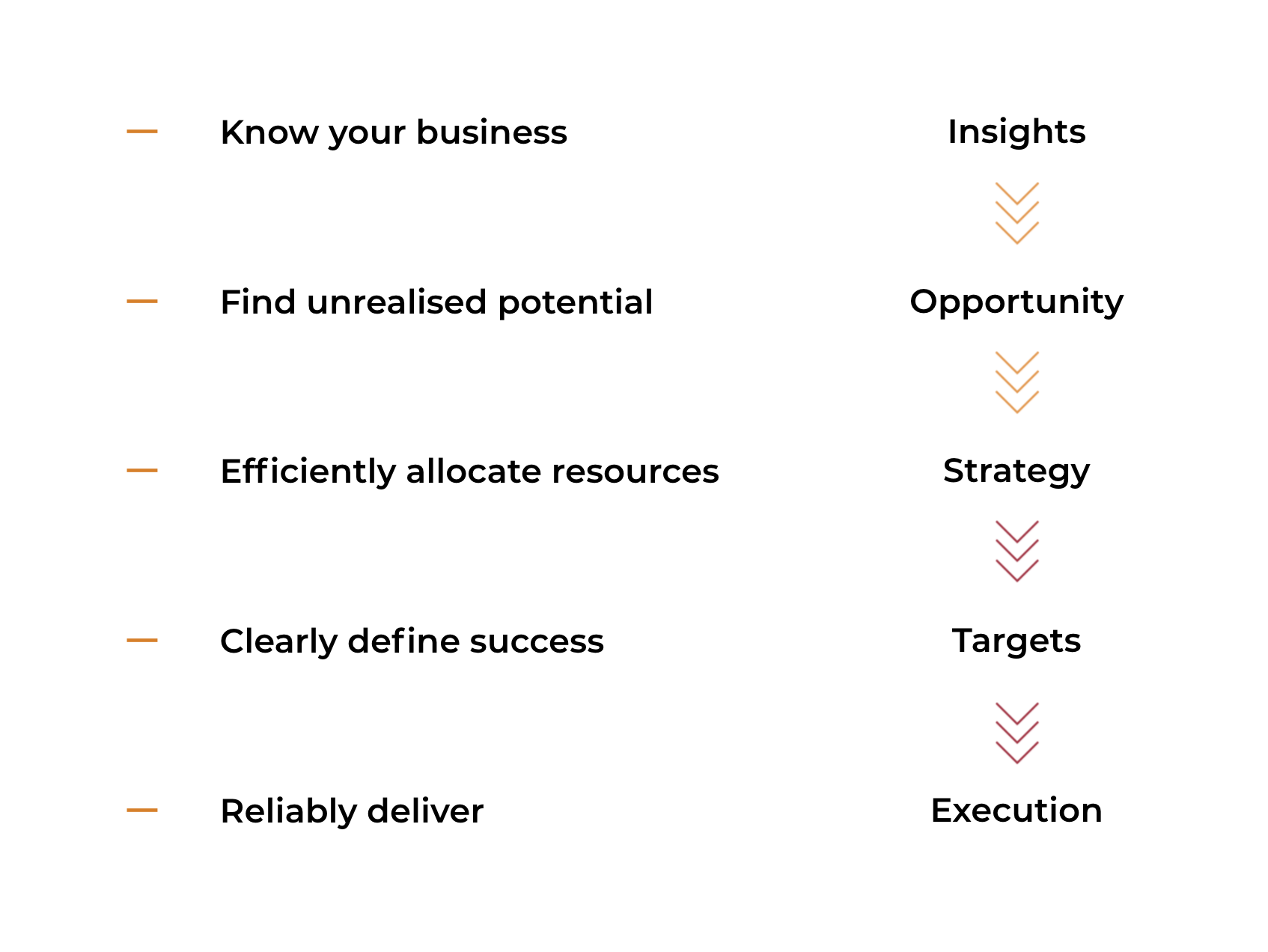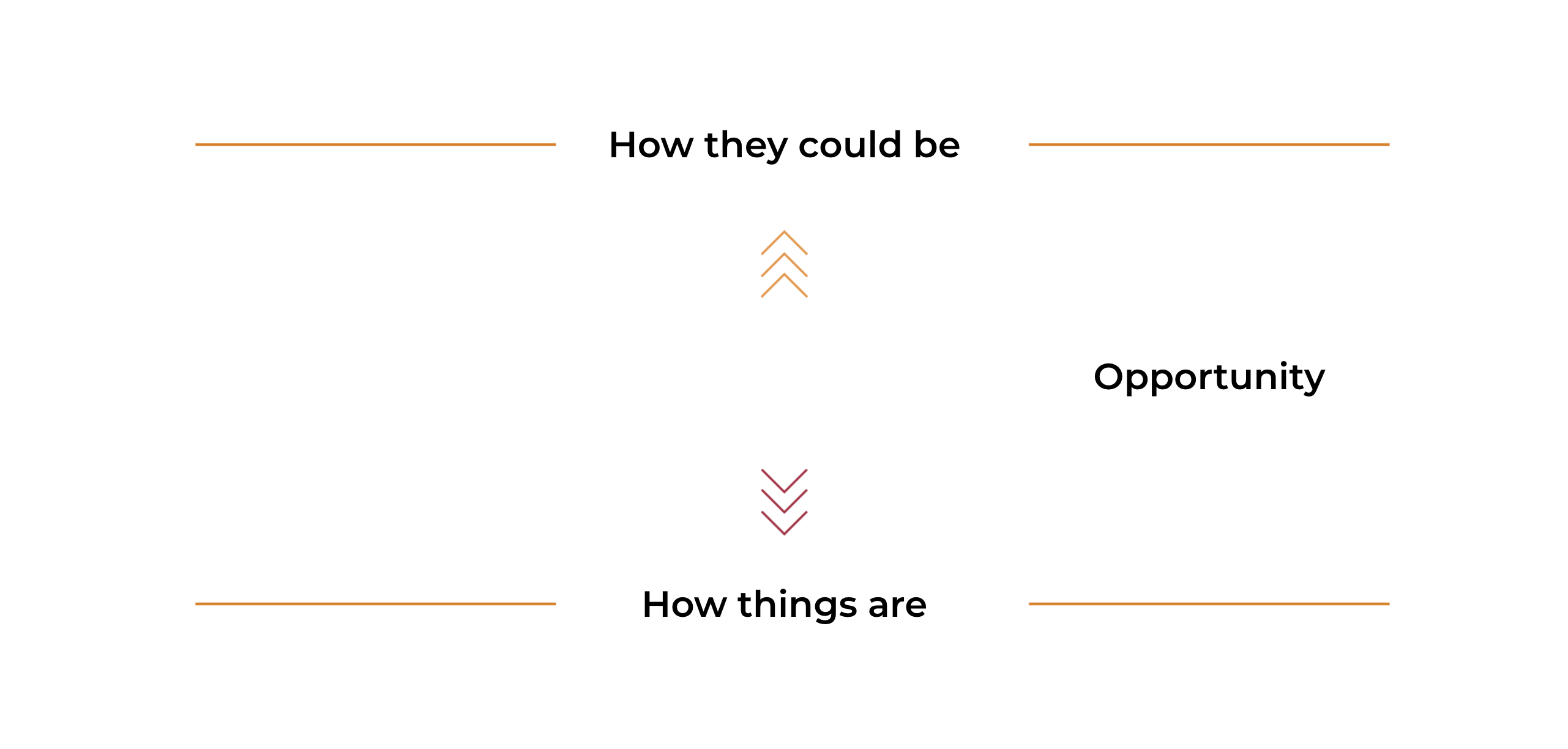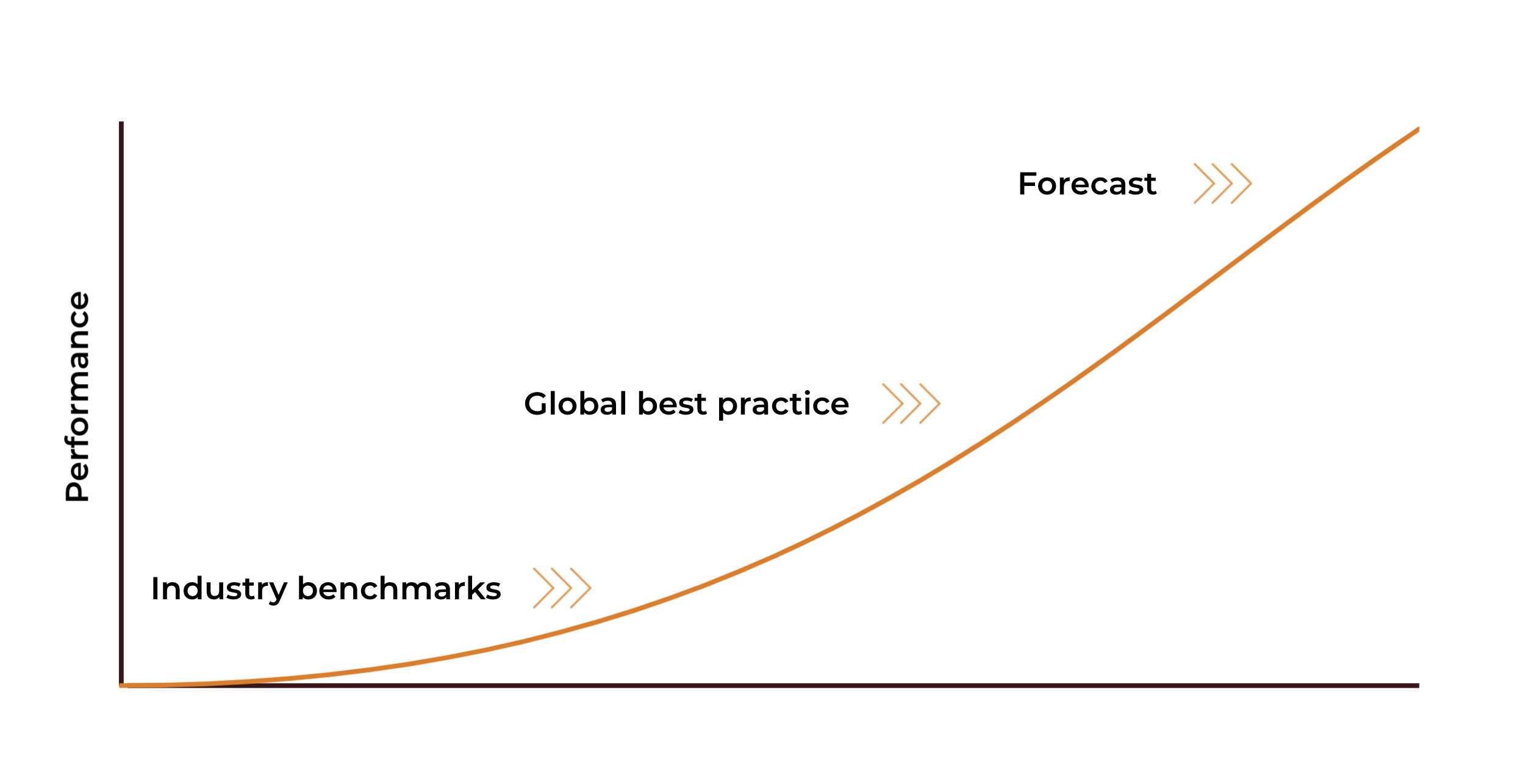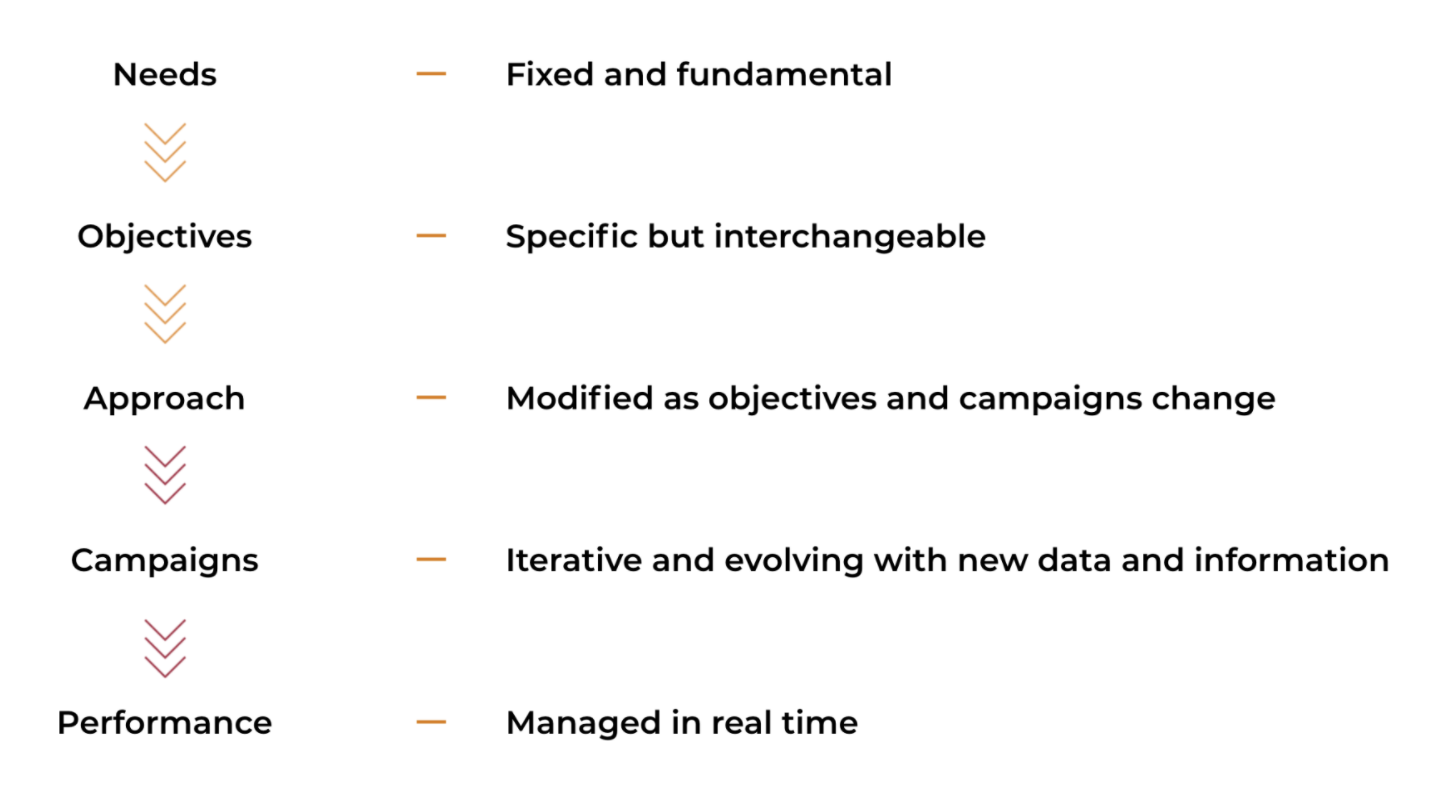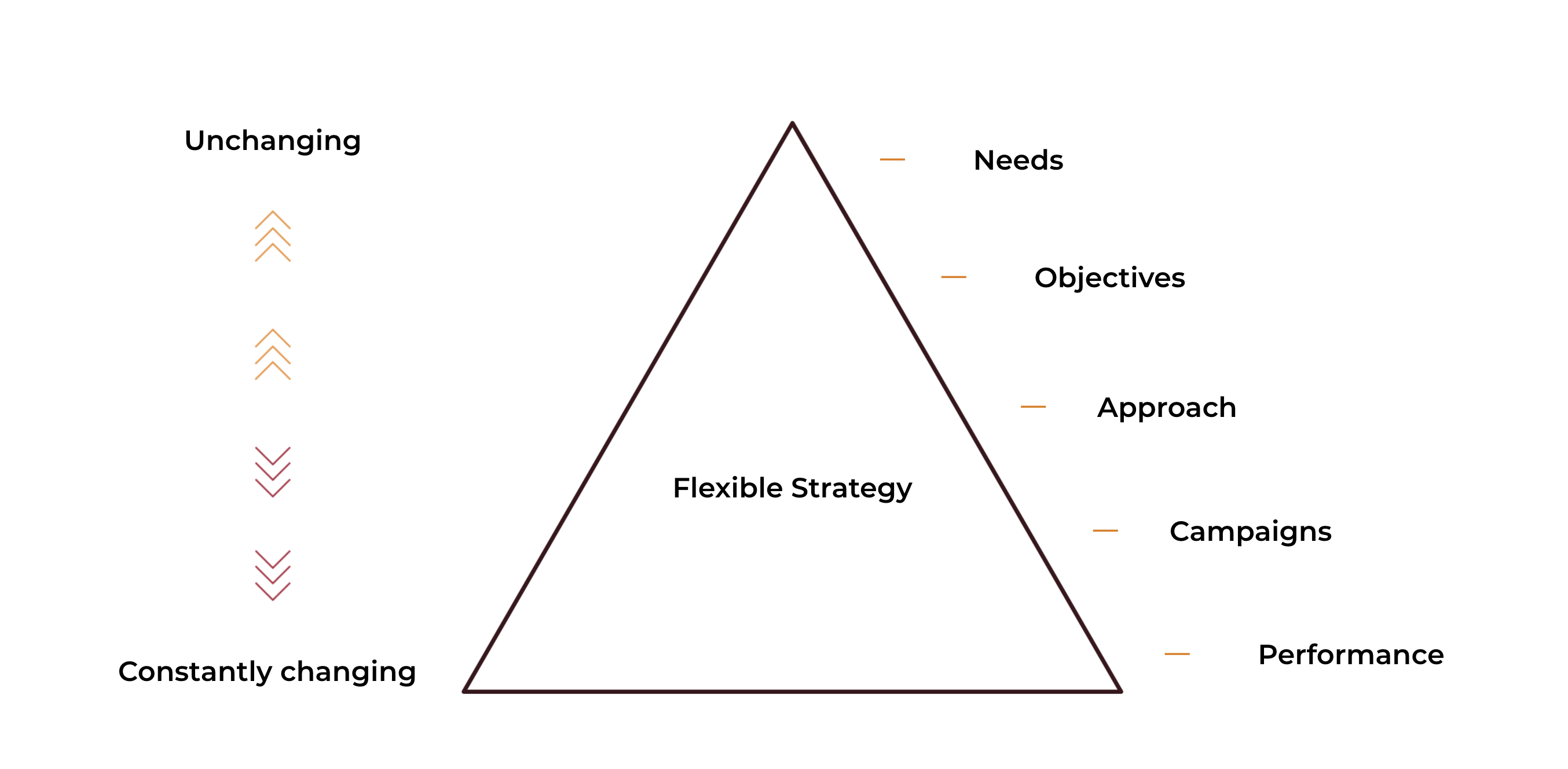All too often, we’re prepared to accept too little from strategy. At best, the most likely outcome is a series of activities that may or may not deliver what’s promised. At worst, what’s called a ‘strategy’ is just a collection of waffle, theory and buzzwords with an added slide deck that no one will use. We need to expect more.
A real strategy should generate genuine excitement. People should feel their hearts race as they anticipate what’s possible and experience the thrill of seeing a future reimagined and defined by a strategic vision. There should be a sense that we are about to take the fight to the competition, overcome the odds and triumph through courage, experience and guile.
When strategy is done well, you will feel like you suddenly have the ability to shape and control your company’s future. The goals that once felt like mere aspirations will now be real targets that you and your whole organisation can get behind. This is what genuine strategy is all about.
You can and should only judge the quality of a strategy by the results it delivers.
If you want results you are going to need discipline; both a willingness to do what is necessary and an understanding of what needs to be done.
To quote Eddie Morra: “I knew what I needed to do and how to do it.”
More often than not, strategy is developed in an ad-hoc fashion, with people jumping into the ideas phase, or using quick-hit ‘tactics’, without first understanding needs and context. Typically, these people quickly lose interest when it turns out strategy is mostly a lot of hard work. To do what is needed at each step of the strategic process requires discipline.
A defined framework provides that discipline, keeping you on point by enabling a swift sense check of strategic thinking, as well as providing a roadmap for deeper analysis and focused thinking.
What to do and how to do it
When you engage us to manage your marketing, you shouldn’t really be too interested in the plan we have created. Anyone can make a plan, and if that is all you need – a plan to have your ample resources well managed – then you probably don’t need a strategy.
Strategy is required when choices must be made, returns must be maximized, losses must be minimized, resources are limited and rivals may look to frustrate your plans.
What you should be interested in, given this strategic context, is the likelihood that the predictions in the plan will be realised – that we can deliver on our predictions with the resources available and that we have the expertise to overcome whatever challenges are thrown our way.
Therefore, assuming you are clear on your goals (note: if you don’t have goals then you don’t need a strategy yet), the strategic elements become prediction, allocation and delivery.
A framework for predictability:
Insight – Know your business
Do you have enough information to form a defendable rationale for your strategic decisions?
There is no such thing as a perfect prediction; not where any significant degree of uncertainty exists. The job in hand is to increase the reliability of the prediction by understanding as much as we can about the problems we are looking to solve.
There is no secret here. The way to do this is to put the work in: to do your research, your analysis and your modelling. You (or we) will dig deep into:
– Your brand
– Your business goals
– Your revenue model
– Your customers
– Your products and services
– Your market
– Your competitors
– Your marketing performance
– Your technology stack
Take the time to understand the factors that are likely to impact your goals, and how you either control those factors or control for them.
Opportunity – Find unrealised potential
Identify where the gaps are in how you reach your customers, enhance their perception of your business, meet their needs and build loyalty.
Could your customer experience be better? Do customers perceive your business incorrectly? Are you unable to measure ROI on marketing spend? Are your customers active in areas where you are not present? Are your marketing platforms inefficient, or is technology hindering your performance?
Gaps could be anywhere, but they only become opportunities when closing them is likely to have a material impact on your business goals.
By comparing the status of your marketing to established benchmarks and best practices, and then forecasting performance, we can establish the size of the opportunity and the likelihood of success.
Insight and past performance alone do not always go far enough. What matters is how insight is interpreted. Insight will tell you why performance is improving or where there appears to be a change in customer behaviour, but not whether they represent an opportunity to be capitalised on.
Data alone can be misleading. It is the application of instinct and experience, a mix of art, science and creativity, that turn an insight into an opportunity. It is the critical eye and the open mind that can combine an insight, a trend, a gap and a product to see the potential that, together, they represent.
Strategy – Effectively allocate resources
“Strategy is rarely an orderly movement to goals set in advance. Instead the process evolves through a series of states each requiring reappraisal.” – Lawrence Freedman
Good strategy needs to be adaptable and created in layers with ever-increasing levels of flexibility.
A strategy should marry the tactics that are being employed with the needs the strategy seeks to address and the approach the strategy will take.
At each layer the impact of change decreases. At the campaign level, regular shifts in direction are planned in and allowed for. At the campaign performance level, testing and optimisation become a core driver of success.
Targets – Clearly define success
While business needs are the reason for creating a strategy, targets are the reason for executing on that strategy.
Setting targets is about more than just the performance of campaigns and creating spreadsheets of cascading conversion rates. Intrinsically bound to your business needs, targets should align with the magnitude of your revenue goals and be framed by profitability, growth and the perception of what success really looks like.
While campaign performance is short-term and subject to change, iteration and pivots, strategy targets are as unchanging as business needs, and can be achieved in any number of ways.
- The immediate targets we set:
- ROI
- Acquisition
- Adoption
- Sales
- Average order value
- The long-terms targets we look to achieve:
- Lifetime value
- Retention
- Loyalty
- Brand equity
- Market share
Coming back to the overarching theme of discipline, useful targets require rigour, precision and a willingness to make assumptions. Successful strategies require the discipline to make measurable targets a non-negotiable. This is hard and requires significant effort in a number of areas.
– Forecasting
– Attribution
– Testing
– Analysis
– Reporting
The tendency is to substitute targets for activities and then to consider a campaign delivered as an effective measure of success.
It is not. Without measurable targets, we have no strategy. Only hollow activity.
Execution – Consistently deliver
One of the most damaging quotes I know has to be from Richard Branson:
“If somebody offers you an amazing opportunity but you are not sure you can do it, say yes – then learn how to do it later!”
This is great for a chancer who wants to get paid to learn, but almost always terrible for the business that wants to achieve its goals efficiently and effectively.
When it comes to execution I think of the Bruce Lee quote:
“I fear not the man who has practiced 10,000 kicks once, but I fear the man who has practiced one kick 10,000 times.”
Do what you are good at. Very rarely will you encounter a problem that hasn’t already been solved a thousand times before (and if you do, congratulations – there’s gold in them there hills!).
Anyone that has repeatedly delivered successful marketing campaigns will exhibit the hallmarks of consistent delivery:
– A desire to be measured on outcomes
– Simple language
– Processes
– Procedures
– Checklists
– Pre-defined approaches
– Best practices
– Benchmarks
– Forecasting models
– Audits and evaluation models
– Preferred tools
Do not be unnerved by those who already have the answer to the questions you are asking and want to show you how it’s done. Be unnerved by those marketers that tell you that the answers or methods are a secret (or, even worse, ‘IP’).
Didn’t have the time to read it all?
Here’s a checklist. If you don’t know any of the following, you don’t have a strategy:
– What is happening in the business and competitive environment.
– What the business and revenue goals are.
– Where the opportunities are to realise those goals.
– What approach you will take to realise those opportunities.
– Where you will allocate resources to support that approach.
– What the measurable targets are that define success.
– What the plan is for delivery.
Ready to define your goals and create your strategy to achieve them?
Could you benefit from a review of your marketing strategy? Get in touch and build the plan to achieve your objectives today!



